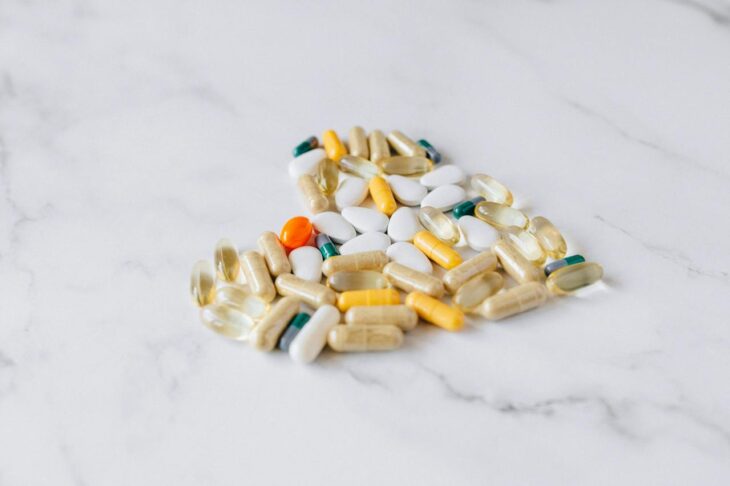
Fertility is a much more complex process than many people realize. In fact, unless you’re struggling with infertility, you probably wouldn’t give it a second thought. But for roughly one in five couples in the US, the act of conceiving a child is anything but easy.
Basic biology teaches us that healthy sperm must meet healthy egg for fertilization. Any number of issues may prevent conception such as blocked fallopian tubes, ovarian insufficiency, low sperm count or a hormone disorder to name just a few. Each couple who struggles with their fertility has a unique diagnosis and treating infertility may involve several steps.
Not surprisingly lifestyle has plenty to do with fertility. Chronic conditions and the medications used to control them, your weight, alcohol use, smoking and exercise all impact your fertility. Your overall health and your diet play a role in conception too.
Support Your Fertility with These Nutritional Supplements
Ideally you and your partner should maintain a well-balanced diet that includes healthy whole grains, lean protein, fresh fruits and vegetables and limit things like sugar and processed foods. But even the best diets don’t provide everything necessary to support healthy fertility or aid in your treatment for infertility. That’s why we recommend supplementing your diet with these essential nutritional supplements for improved fertility.
Folic Acid
Folic acid, aka vitamin B9, is essential for preventing birth defects. A folic acid deficiency contributes to the risk of neural tube defects. These defects affect brain and spinal development. A recent study by the CDC recommends 400 micrograms of folic acid daily for women who are trying to conceive. Neural tube defects usually form in the first few weeks of pregnancy. Taking enough folic acid prior to pregnancy aids in preventing neural tube defects which could lead to miscarriage.
According to a study reported by the NIH, higher intake of folate (or the supplement folic acid) may improve ovarian reserve.
B Vitamins
Research shows a relationship between high homocysteine levels and miscarriage. Researchers have also found vitamins B12 and B6, along with folic acid, keep homocysteine levels regulated and diminish the risk of miscarriage.
Additional research resulted in finding vitamin B12 aids in successful IVF and other fertility treatment. Low levels of B12 in females could result in poor embryo quality which may result in miscarriage or birth defects. Additionally, as reported in the same NIH study mentioned above, B12 and B6, along with folic acid improve the ovarian reserve in some females.
Vitamin D
Both female and male fertility benefit from supplementing the diet with vitamin D and most people simply don’t get enough. Females diagnosed with PCOS are typically deficient in vitamin D. Supplementing with this important vitamin may have a positive impact on PCOS. In any event vitamin D lessens the risk for preeclampsia, pre-term birth, low birth weight and gestational diabetes.
For males vitamin D supplementation improves the motility of sperm as well as the semen quality. A good supplement all the way around!
Omega-3/Fish Oil
While the research as far as the impact of omega-3 essential fatty acids on fertility remains, ongoing there are some studies proving omega-3’s benefits. It’s long been recognized that omega-3 supplementation benefits males and females insofar as heart health, but recent studies prove omega-3 essential fatty acids increase the probability of pregnancy with IVF. Omega-3 helps regulate hormones and supports healthy sperm development.
CoQ10
Coenzyme Q10 is an antioxidant which works on reducing oxidative stress that hinders reproduction. CoQ10 aids in improving egg quality and helps induce ovulation in females with PCOS. CoQ10 improves sperm quality including motility and concentration.
Selenium
Selenium is a trace mineral used to build proteins and an antioxidant as well. A selenium deficiency increases the risk for miscarriage, and a deficiency in males results in poor quality sperm. Some studies show selenium has a positive impact on the number of healthy follicles in those females deficient in selenium.
Though studies and research remain ongoing the good news is both males and females benefit from supplementing their diet with selenium.
Prenatal Vitamins
Prenatal vitamins aren’t just for pregnant people. Those trying to conceive benefit from these supplements as well. Prior to pregnancy you’ll protect your body from any deficiencies in those essential nutrients included in prenatal vitamins. Once you conceive the prenatal vitamins ensure the nutritional health and wellness of both you and your developing baby.
While males don’t normally take prenatal vitamins, there are specific supplement formulas that support sperm development as well as overall health and wellness.
Choosing The Right Supplement
Not all supplements are equal. And research on the benefit of fertility supplements is ongoing so additional information may come to light. However, taking the right supplements is the best course of action for improving fertility in both males and females. Make sure your supplements are high quality and doctor-approved before beginning a vitamin regimen.
A Good Start
At LA IVF, we strive to help you along your path to parenthood. Ensuring your health and wellness and preventing vitamin deficiencies not only helps during fertility treatment and pregnancy but improves your wellbeing for life. Give your baby the best possible start before conception. Contact LA IVF.










